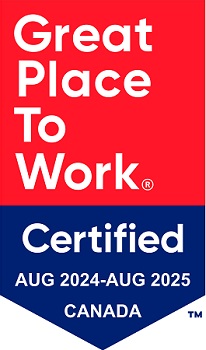
In this blog we ask, what does it really take to buy a home? And is the dream of home ownership realistic for young Canadians? Our cautious take: there’s good news in the next 1,500 words.
Unless you’ve been living under a rock, you’ve probably heard about how hard it is to enter the Canadian housing market. “Affordability has never been worse,” says recent data from RBC.1 While 60% of Canadians could afford a condo in 2019, that share dropped to just 40% a mere four years later.2 In Vancouver, one of the least affordable cities in the world,3 the average home costs the average buyer more than ten times their annual salary.4 In short: “We’re running out of superlatives to describe Canada’s housing crisis.”5 Suddenly, living under that rock might not sound so bad (is it in a good school district?).
OPTIMIST, PESSIMIST, DELUSIONAL?
Despite the deluge of bad press, many Canadians are holding on to hope. According to a recent survey commissioned by RE/MAX, the desire for home ownership is still strong, with 73% of the population believing real estate is “the best investment they can make.”6 If this is you, we get it. You work hard, so why not fantasize about an exposed beam ceiling or heated floor to call your own?
We also know how scary it can be to hold onto a dream that feels out of reach. Maybe it reminds you of when you first applied to law school, fully conscious of the tough admission rates, tuition costs, and grueling course load ahead of you. Yet you pushed through because you knew this was the career you wanted, and you understood the value of what you were getting yourself into. Is the housing market another challenge you can grit your teeth and caffeinate yourself against?
Well, not exactly. But you do have one fearless ally, Natasha Black, Financial Planner at Lawyers Financial, who relishes her work helping first-time buyers enter the housing market. “I absolutely think it’s possible for people to purchase property, even with the cost of living being so high these days,” she says. “The way I suggest people see it is: ‘What are the tools I have at my disposal that will help me reach my goal?’ I’m talking about having a budget in place, disciplining yourself, and taking advantage of government programs set up to help first-time buyers.”
GETTING DOWN TO BASICS
A home: fridge, stove, a couple of toilets, one of those mirrors that leans against the wall, and a pet to gnaw on your best furniture. Homebuying is also a collection of various parts and processes. These include things like a downpayment and a mortgage, terms you’ve probably heard before even if you don’t exactly know how they work, or the dollar amounts attached to them.
Using Montreal’s housing market as a base, Black takes us through some of these numbers.
For reference, Montreal’s market is in the low-to-average range on the country’s affordability scale, significantly cheaper than Vancouver and Toronto (where, as of July 2024, the average condo prices were $818,3157 and $718,698,8 respectively), but more expensive than Edmonton and Winnipeg (where the average condo costs $211, 5839 and $272,303,10 respectively).
With the median price for a Montreal condo sitting at around $425,000, Black says that, in order to be approved for a mortgage, a potential buyer needs at least 5% saved for a downpayment (which would work out to roughly $21,250), as well as an annual salary or combined family income of $115,000 to $125,000, and without a significant debt burden.
“I’m not saying debt is bad,” Black elaborates, acknowledging that a lot of her clients in the legal community may have significant student debt loads. “You need to minimize your debt because when you meet with a mortgage broker, they’re going to ask you about assets and liabilities. If your debts are high, they’re not going to lend you the money. Sit down with a professional to see the status of your finances, plan your real estate purchase, and arrive at the time of purchase without encountering any surprises.”
Another tricky detail is how these numbers don’t discriminate between single people and those who are coupled up. Whereas partners can split the financial burden of saving for a downpayment and reaching a combined six-figure income, singles go it alone. The good news is that, especially in certain fields of law, there’s plenty of money to be made, with the average legal salary in Canada sitting at $126,595.11
It’s also worth noting that those with a lower annual income may be able to find a path toward ownership via a larger downpayment. “That means more than 20% cash down,” says Black, describing how this money can come from sources including savings, inheritances, and bonuses. “If people are good with their budgets,” Black continues, “they’ll be able to save a lot of money and put more cash down.”
WAIT, I’M SUPPOSED TO FEED MY PIGGY BANK HOW MUCH?
Black is aware that these are big numbers and stresses that while it’s important to be prepared for how much a home costs, potential buyers shouldn’t get discouraged. “I’m really positive about young people’s potential to enter the market,” she says. “Even as the cost of living increases, you just have to discipline yourself and you’ll get there.”
What she’s talking about is some good old-fashioned budgeting. When she meets with a new client, the first step is always to take a close look at how they’re spending their money. “I’m looking for areas they can cut down on,” Black explains. “It’s usually things like clothes or restaurants. I’m never saying you can’t go out anymore or you have to stop shopping altogether, but can you spend a little less? Can you go to a different kind of restaurant?”
“I absolutely think it’s possible for people to purchase property, even with the cost of living being so high these days.”
The key isn’t to deprive yourself, but to create a plan that’s sustainable for the long haul. “I’ll commonly work with clients over a number of years to save for a downpayment,” she says, adding that one trick to make this timeline less daunting is to think about it in months instead of years. “That's always less intimidating for people. If I say to someone, ‘You have to watch your budget for two years,’ they’re going to get overwhelmed. But if I say, ‘Cut back on Uber Eats for the next 24 months,’ that feels easier. What’s 24 months in a lifetime?”
GETTING BY WITH A LITTLE HELP FROM THE FEDS
Black’s enthusiasm for home ownership is hard to overstate: “Yes, it’s a lot of money, but you have to see your property the same way you see your retirement savings or any other long-term goal. Even if you buy later in life and finish paying your mortgage in your late 60s, you’re probably going to live for another twenty years. That’s twenty years when you won’t have to pay rent. It’s a pretty good deal. You can travel or give that money to your children.”
Yet if her eagerness to help first-time buyers enter the market seems disconnected from the financial realities of our current economy, it’s not. “We’re in a rough patch now,” Black acknowledges. “Our parents had a rough patch too. From 1987-1995 in Canada inflation and unemployment were high. But things got better. The advantage right now is that people have tools to help them.”
For example, the Federal Government has established several programs to encourage home ownership among Canadians. The Home Buyers Plan allows you to withdraw funds tax-free from your RRSP to buy or build a first home. While previously the maximum amount you could withdraw was $35,000, that number is now up to $60,000. As of 2022, there’s also the First Home Savings Account, a registered plan that allows first-time home buyers to save up to $40,000 tax-free towards a downpayment. Another recent change is that as of August 1 of this year, any first-time buyer buying a new-build home has access to a 30-year mortgage (instead of the previous maximum of 25 years), making monthly payments more affordable.
Black also highlights banking apps that help users stay on track with their budgeting. More and more people are even learning about personal finance on social media, with popular TikTokers espousing spending and investment advice. “I love it,” she says with a smile. “The more people talk about it, the better. I say do your own research. If you have questions, that’s when you go to a professional. I’ll be happy to see you.”
“HOME IS WHERE THE HEART IS”
Your grandmother wouldn’t have embroidered it on so many pillowcases if there wasn’t some truth to it. But at a time when it can feel audacious to buy butter ($9!?), we understand that home ownership might seem out of reach (47,222 lbs of butter!). After all, prices are sky-high, there’s no way around it. Thankfully your arsenal has also upped its game. If you’re willing to use all the tools at your disposal—professional help, government programs, patience, and discipline—that dream might not be as far-fetched as you might think.
We can help.
Whether you want to buy a new build, an old build, or even just an excellent parking spot—we can help turn that idea into a plan of action. Connect with a certified financial planner for ideas you can act on.
Book a pro bono financial planning meeting now
Sign up for more
Sign up for our newsletter to stay updated and receive upcoming blogs and similar content, tailored to law students and new lawyers, straight to your inbox.
Sources: 1. Better Dwelling, “Buying a house in Canada has never been harder, years to correct: RBC,” April 2, 2024. 2. RBC Thought Leadership, “High rates and prices make it less affordable to own a home in Canada,” December 20, 2023. 3. Global News, “’Impossibly unaffordable’: Housing report ranks Vancouver 3rd most expensive in the world,” June 17, 2024. 4. RBC Thought Leadership, “Toughest time ever to afford a home as soaring interest costs keep raising the bar,” April 2, 2024. 5. Fraser Institute, “There are no solutions to Canada’s housing crisis—only trade-offs,” December 23, 2023. 6. Newswire.ca, “Necessity is the mother of invention: Economy compelling young Canadians to explore alternative ways to purchase a home,” February 27, 2024. 7. Wowa.ca, “Vancouver housing market report,” August 2, 2024. 8. Wowa.ca, “Toronto housing market report,” August 2, 2024. 9. Wowa.ca, “Edmonton housing market report,” August 2, 2024. 10. Wowa.ca, “Winnipeg housing market report,” August 2, 2024. 11. Careerinlaw.net, “Lawyer Salary Canada: Detailed 2024 review of highest and average salaries.”


